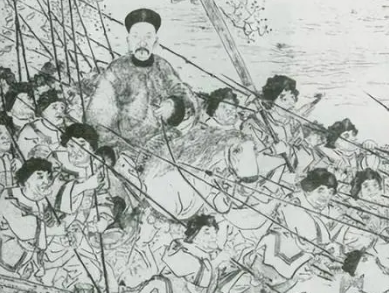The "Post-Campaign Manifesto" is a farewell work of Zhu Ge Liang, the chancellor of Shu Han during the Three Kingdoms period, carrying profound historical backgrounds and rich cultural implications. The reason why this work is called "terrifying" is that it is directly related to the survival of the Shu Han nation at that time. This article will take you to delve into the battle for the survival of Shu Han behind the "Post-Campaign Manifesto".

I. The Creative Background of the "Post-Campaign Manifesto"
The "Post-Campaign Manifesto" was written in 234 AD, the last memorial submitted by Zhu Ge Liang to Liu Chan while he was alive. At that time, the Shu Han nation had already undergone many northern expeditions and its national strength was declining. In order to save the nation from danger, Zhu Ge Liang decided to go out to war again, but was unable to continue due to his illness. At this critical moment, he wrote the "Post-Campaign Manifesto", expressing his concern and loyalty to the fate of the nation.
II. The Crucial Battles for the Survival of Shu Han
The battles mentioned in the "Post-Campaign Manifesto" mainly refer to the wars between Shu Han and Cao Wei. Among them, the battles of Jie Ting and Wu Zhang Yuan are the key battles for the survival of Shu Han. Although the Shu Han army fought bravely in these battles, they ultimately failed to achieve decisive victories due to the vast strength disparities and internal conflicts. This made the survival of the Shu Han nation precarious.
III. Loyalty and Concern in the "Post-Campaign Manifesto"
In the "Post-Campaign Manifesto", Zhu Ge Liang expressed his loyalty and concern for the fate of the nation. He was fully aware of his deteriorating physical condition, but still decided to serve the nation to the end. He stated in the Manifesto, "I will serve the nation to the utmost of my abilities, even after my death," demonstrating his loyalty and commitment to the Shu Han nation. At the same time, he also expressed his concern for the future of the nation, worrying that it would decline after his death.
IV. Conclusion
The "Post-Campaign Manifesto", as a work filled with loyalty and concern, reflects the severe situation faced by the Shu Han nation at that time. It showcases the responsibility and helplessness of a hero at the brink of national survival, and also reminds us to cherish the peace and prosperity of the present. By understanding the battle for the survival of Shu Han behind the "Post-Campaign Manifesto", we can better understand history and draw wisdom and strength for today's national construction.
Disclaimer: The above content is sourced from the internet and the copyright belongs to the original author. If there is any infringement of your original copyright, please inform us and we will delete the relevant content as soon as possible.
































